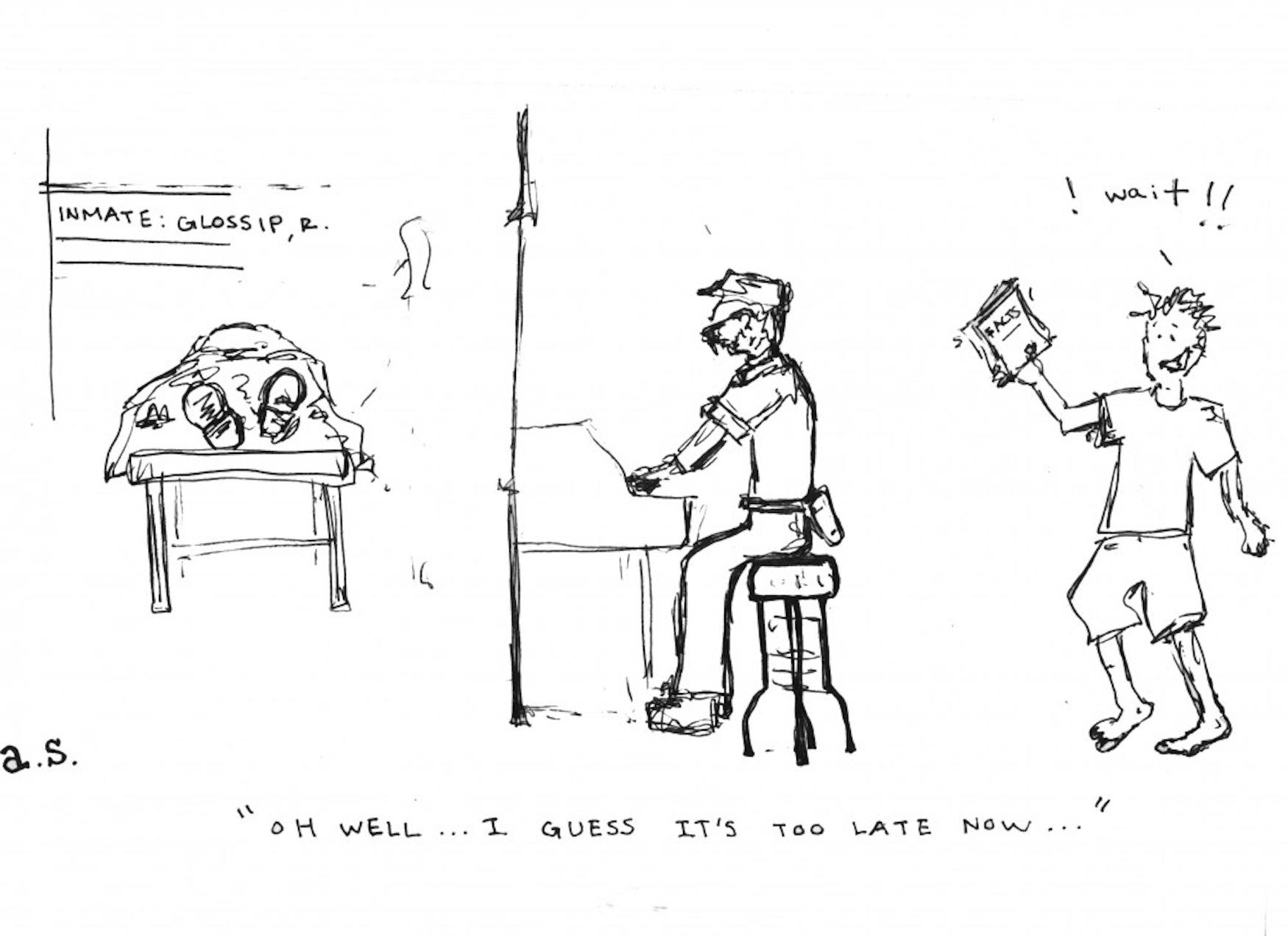Condemn death penalty sentence in Glossip murder case
On Sept. 16, less than four hours before he was scheduled to die, the Oklahoma Court of Criminal Appeals granted Richard Glossip a two-week stay of execution in order to hear more evidence about prosecutor misconduct and Glossip’s possible innocence.
In 1997, Justin Sneed murdered Barry Van Tresse, the motel owner of Best Budget Inn. Sneed and prosecutors claimed that Glossip, an employee at the motel, paid Sneed to carry out the murder for financial reasons. Glossip admitted to covering up Van Treese’s murder but argued he never paid Sneed to commit the crime. Many agree that Glossip did not murder Van Treese and that there was no physical evidence tying him to the event; yet, both in 1998 and at his retrial in 2004 Glossip was sentenced to death on Sneed’s testimony which he gave to avoid the death penalty himself.
On Monday, Sept. 14, Glossip’s lawyers submitted a signed affidavit by Sneed’s cellmate and daughter that Sneed had lied about Glossip’s involvement in order to avoid the death penalty and instead receive life in prison. Sneed’s testimony was unreliable and at best, inconsistent; he was unable to remember Glossip’s name in his first testimony, and the amount that he said Glossip paid for him to kill Van Treese ranged by thousands of dollars.
There are many reasons that a person, whether or not they happen to support the death penalty, would be horrified by the events in Oklahoma due to the nature of Glossip’s sentencing. Perhaps the most troubling aspect of the case is the fact that the person on death row likely did not actually commit the crime for which he is being executed. Glossip is only on death row because Sneed testified that Glossip paid him to murder Van Treese. However, there is little evidence to back up Sneed’s story.
Prosecutors argued that Glossip wanted Van Treese murdered to cover up an embezzlement scheme Glossip had ran, but the financial records regarding the scheme that the defense requested were apparently destroyed in a flood. According to Sneed, Glossip used a shower curtain to cover up a broken window to try to hide the murder, but the curtain was neither tested for DNA nor entered into evidence. The curtain has since been destroyed.
The case for executing Glossip only becomes more troubling when one analyzes the prosecution’s actions during his multiple trials. In 1999, before Glossip’s first appeal trial, the prosecutors destroyed a box of evidence that was incorrectly labeled as “appeals exhausted.” The box contained some—but not all—of the motel’s financial records, and the missing record could have possibly exonerated Glossip. Glossip’s lawyers were never informed that the evidence had been destroyed or that it had even existed in the first place.
There is no DNA evidence linking Richard Glossip to Barry Van Treese’s murder, and if one does not take Justin Sneed’s questionable confession and statements into account, Glossip’s only crime is trying to cover up the murder. The state of Oklahoma accepts that Glossip did not murder anyone and that there is no DNA or physical evidence tying him to the scene. That is what makes this case so tricky and so much more disturbing. It is not a question of evidence but rather a question of how willing a state is to execute someone who cannot ever be scientifically exonerated but nevertheless is very likely to be innocent.
I oppose the death penalty under all circumstances for myriad reasons, some political, some personal and some moral and spiritual. There are too many flaws in the system, too much power given to elected officials to play God, too many disparities in sentences between white defendants and minority defendants, too many executions stopped at the last moment because the accused was in fact innocent and too many executed who were later exonerated of their crimes too late.
A recent study by the Proceedings of the National Academy of Sciences found that roughly four percent of all executed are actually innocent. However, regardless of one’s perspective on if the death penalty is constitutional or even right, it is safe to say that justice will not be served in the state of Oklahoma if Richard Glossip is executed.



Please note All comments are eligible for publication in The Justice.